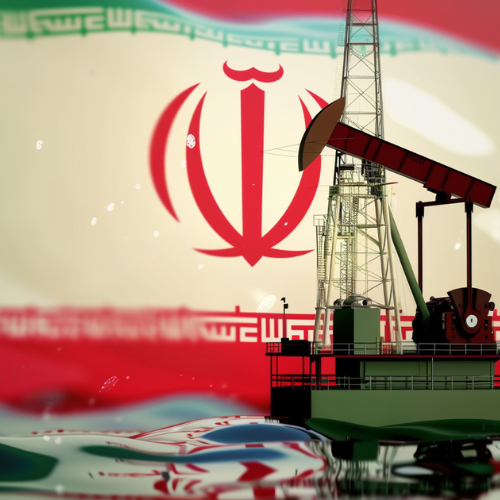The United States has announced sanctions against a network of nearly two dozen companies and agents accused of helping Iran secretly sell oil to China. According to the U.S. Treasury Department, these companies worked together to move billions of dollars worth of Iranian oil by disguising its origin. The oil sales are linked to Iran’s top military body through a front company called Sepehr Energy.
Officials say the money earned from these oil sales helped fund dangerous programs, including the development of missiles, drones, and even nuclear activities. It also allegedly supported attacks by armed groups in the Middle East.
The network involved several businesses based in Hong Kong, mainland China, and Singapore. These companies used methods such as fake documents, ship-to-ship oil transfers, and false labels to make the Iranian oil appear as if it came from other countries. This allowed the oil to enter Chinese markets, even though international rules banned such sales.
The Companies and Their Roles
The U.S. Treasury named several companies that played a key role in this operation. Among the Hong Kong–registered firms, the department identified:
No Mercy: Trump Promises Sanctions on Any Country Trading with Iran Oil
- Xin Rui Ji Trad Co
- Star Energy International Ltd
- Milen Trading Co Ltd
These companies were reportedly controlled by Sepehr Energy, which used them to manage and receive oil shipments that ended up in China.
Other companies based in Singapore and mainland China also took part. One of them, CCIC Singapore PTE, allegedly helped Sepehr during ship-to-ship transfers by providing inspection services. According to U.S. officials, this company may have falsified documents to make Iranian oil appear to be from a non-sanctioned country. A sister company, Huangdao Inspection and Certification, was also involved in similar activities.
Shipping agents were another part of the network. Qingdao Linkrich International Shipping Agency Co, based in China, helped vessels chartered by Sepehr to dock and unload at Chinese ports. These services allowed the disguised oil to enter the country more smoothly.
Several other Hong Kong companies acted as middlemen between Sepehr and small oil processors in China, known as “teapot refineries.” These firms included:
- Metaone Trading Ltd
- South Sea Energy Ltd
- Continental Sinoil Group Ltd
- Winso Trading Ltd
In Singapore, Oriental Apple Company PTE Ltd was also identified as one of the intermediaries.
Crackdown: U.S. Sanctions Iranian Oil Tycoon Emamjomeh for Secret Global Fuel Network
These middlemen helped supply discounted Iranian crude oil to independent Chinese refineries. These refineries often look for cheaper oil sources, even if they come from countries under sanctions.
Earlier this year, the U.S. had already taken action against three of these Chinese “teapot refinery” companies. The latest round of sanctions expands that effort by targeting the full network that allowed the oil trade to happen.
Global Reactions and Rising Tensions
In response to the new sanctions, the Chinese government strongly criticized the U.S. decision. A spokesperson from the Chinese embassy said that the U.S. was wrongly interfering in normal trade between China and Iran. He called the move an example of “abuse of unilateral sanctions” and said that China would take necessary steps to protect its companies.
At the same time, the announcement came alongside a major development between the U.S. and Saudi Arabia, Iran’s regional rival. The U.S. revealed a $600 billion investment deal with Saudi Arabia. This agreement will involve sectors like energy, artificial intelligence, and defense.
Meanwhile, the U.S. and Iran recently held another round of talks in Oman about nuclear issues. However, those talks ended without major progress.
The U.S. says it will continue to target Iran’s oil trade because the money it brings in supports activities considered harmful to global security. All individuals and companies affected by the new sanctions will have their U.S.-connected assets frozen. They are also banned from doing any business with American companies or through the U.S. financial system.


